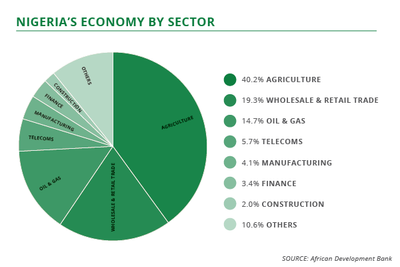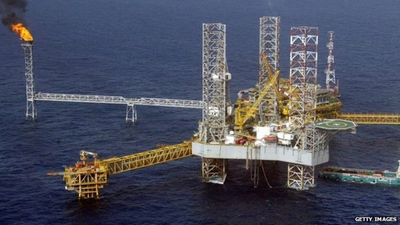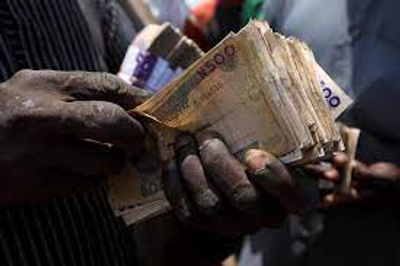This commentary was republished on March 19, 2015, by the Cable and the Metropole but was originally written by Professor Calestous Juma.
I once asked a U.S. army commander responsible for Africa what kept him up at night about the continent. “Elections,” he said. His concern was the kind of political anxiety that has gripped Nigerian ahead of the next elections.
The postponement of elections signifies Nigeria is at a delicate crossroads, with the next several weeks being a critical period in the nation’s democracy and its relations with Africa and the world. But the stakes are high for the international community as well.
But amid these concerns, Nigeria’s economic future remains optimistic. According to a recent survey, the country is projected to be among the 10 fastest economies in the world is 2015. Sustaining this positive outlook will be significantly influenced by the conduct and outcome of the elections.
The most important measure of national maturity is conducting free and fair elections and avoiding post-election violence. Of the latter, Nigeria has had too much already.
The international community has been slow to support Nigeria’s fight against Boko Haram’s extremism. The UN Security Council only recently even acknowledged the conflict. The United States, France, and the United Kingdom have offered some support, but not enough to significantly impact the outcome. Many have argued that Nigeria has been slow to respond to the crisis. But Boko Haram is a global issue, not just a Nigeria concern. The decision of the African Union to send 8,700 troops to fight the extremists underscores the international nature of the crisis.
Nigerians must take the lead in combating this threat. But beyond the loss of life and human suffering, the violence and instability threatens Nigeria’s economic growth prospects. Nigeria has made an effort to diversify its economy from oil and invest in agriculture, manufacturing, and services. The effort is even more urgent now in the face of falling global oil prices.
Nigeria is Africa’s largest economy and 26th in the world. Its GDP stands at $510 billion with immense growth potential. A stable and peaceful Nigeria will contribute to Africa’s rise and integration into the global economy. On the other hand, an unstable, stagnant and conflict-driven Nigeria will be a threat to regional and global stability.
Last year, President Barack Obama hosted Africa’s leaders at a summit in Washington. One of the highlights was an impressive gathering of CEOs from many of the largest U.S. companies, to explore new business opportunities across Africa. Importantly, investor interest in Nigeria and across Africa today includes not just oil and mining companies looking to develop and export natural resources, but infrastructure, technology, consumer goods, agribusiness, and manufacturing companies that can sustain growth, create jobs, and improve livelihoods.
The United States is the largest foreign investor in Nigeria, with many U.S. companies looking ahead to the potential of a large, growing consumer market emerging in the country. It is vital that this investment interest not be undermined by the spread of violence and instability.
The culture of corruption is entrenched in Nigeria. Taking it on should be a top priority for the winner. Nigeria has shown that it can act. An example is reforming the system to provide farmers with agricultural input. Today, the private sector distributes fertilizer to farmers, with the government only providing a subsidy. It has created a national database of more than 10 million smallholder farmers to ensure they receive the needed supplies. This is far from being enough, but it is an important step forward.
Nigeria has the potential to be a key exporter of agricultural produce. It has over 84 million hectares of arable land — larger than the size of Turkey — but only 40 percent of it is currently cultivated. It has abundant rainfall and a labor force that can increase agriculture production. With continued reforms and infusion of domestic and foreign investment, this sector can grow to feed Nigerians and the wider world.
The country has shown its potential to nurture a growing entrepreneurial class. The emergence of Nollywood, a booming billion dollar film industry, has been made possible by a combination of new digital technologies and a culture of entrepreneurship. Investing in infrastructure (energy, transport, irrigation, and telecoms) to grow other sectors requires peace and stability. The country’s infrastructure gap between now and 2030 is estimated at $2.4 trillion.
The way Nigeria swiftly contained Ebola through state, federal, and international cooperation is another sign of the country’s potential to be a key regional and international player. Nigeria also plays a decisive role as a leader in peacekeeping across Africa.
The country’s political and military leadership needs to ensure a free and fair vote. All sides must respect the result. Then the international community needs to support Nigeria’s efforts to promote economic growth and social inclusion, contain violence and extremism, and tackle corruption. Investment in diplomacy, economic engagement, and security will lead to a more prosperous Nigeria. Africa and the world will sleep better with a stable and peaceful Nigeria. read more



